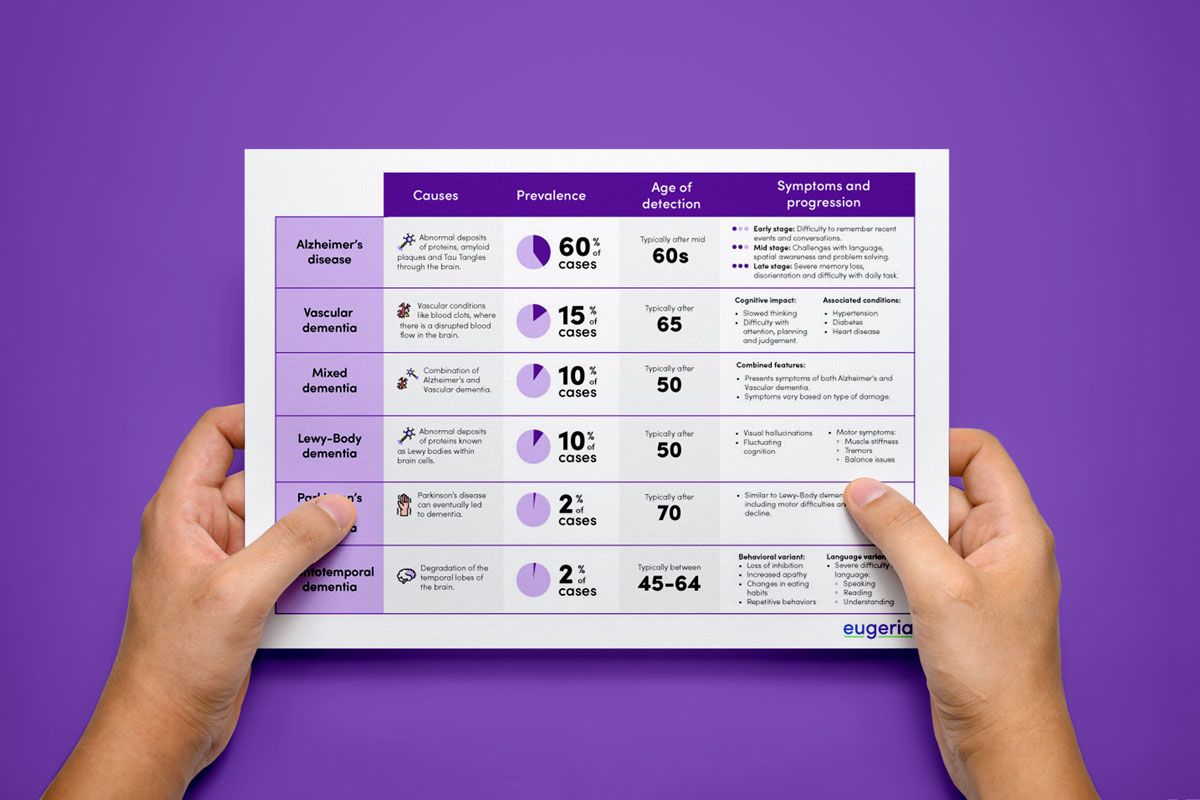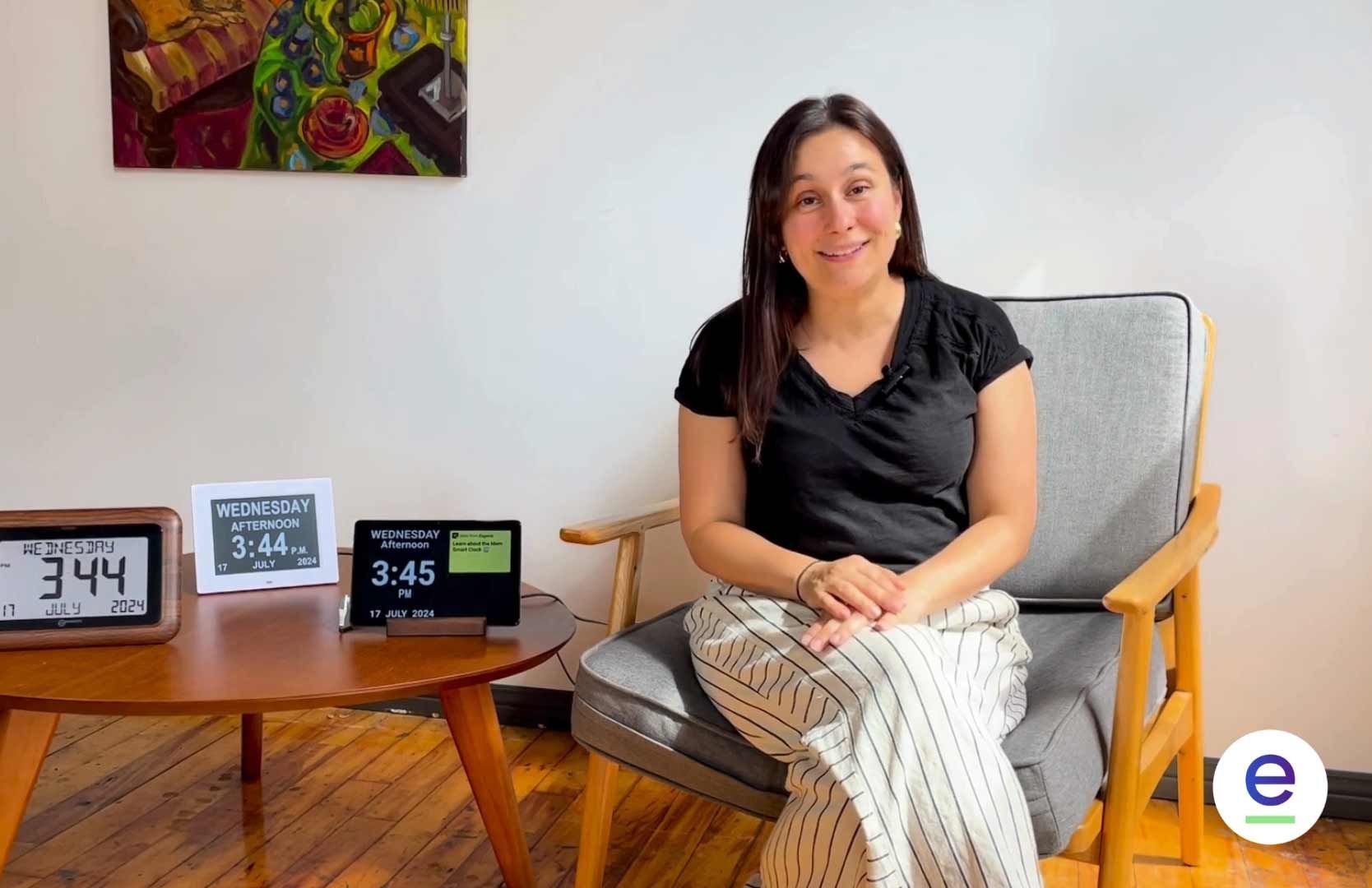This infographic offers a comprehensive overview of Activities of Daily Living (ADLs), which are essential self-care tasks crucial for maintaining independence and well-being. ADL include ba...

Understanding Different Forms of Dementia: Why Accurate Diagnosis Matters
Dementia is a term often used to describe various brain-related issues, but it encompasses several distinct conditions, each with its own characteristics and management strategies. It is caused by physical changes in the brain. Recognizing the different types of dementia is important for providing appropriate care and support. This article aims to clarify these distinctions and shed light on why understanding them is important.
What is Dementia?
Dementia, also referred to as "major neurocognitive disorder," involves a decline in cognitive functions due to damage to the brain. While Alzheimer’s Disease is the most widely known form of dementia, it is just one of many. Distinguishing between these types is essential for tailoring treatment and care to the specific needs of the individual.
Alzheimer’s Disease: The Most Common Form of Dementia
Overview: Alzheimer’s Disease is the most prevalent form of dementia, characterized by a gradual loss of memory. Initially, individuals may forget recent events, names, or conversations, while long-term memories from years past remain more intact. As the disease progresses, it affects other brain functions such as language, attention, planning, and judgment.
Symptoms and Progression:
- Early Stage: Difficulty remembering recent events and conversations.
- Middle Stage: Challenges with language, spatial awareness, and problem-solving.
- Late Stage: Severe memory loss, disorientation, and difficulties with daily tasks.
Treatment and Management:
Current treatments aim to slow the progression of symptoms. Medications like acetylcholinesterase inhibitors and meantine can be prescribed to manage cognitive decline and improve quality of life.
Vascular Dementia: Impact of Blood Vessel Damage
Overview: Vascular dementia results from damage to the brain's blood vessels, leading to impaired cognitive functions. It can occur due to large vessel blockages, such as strokes, or small vessel blockages, often referred to as microvascular damage.
Symptoms and Progression:
- Cognitive Impact: Slowed thinking, difficulty with attention, planning, and judgment.
- Associated Conditions: Often linked with risk factors like hypertension, diabetes, and heart disease.
Treatment and Management:
There is no specific medication for vascular dementia, but managing risk factors and maintaining overall cardiovascular health can help control symptoms.
Mixed Dementia: A Combination of Alzheimer’s and Vascular Dementia
Overview: Mixed dementia involves a combination of Alzheimer’s Disease and vascular dementia. This form is more common in older adults as both types of damage accumulate over time.
Symptoms and Progression:
- Combined Features: Exhibits characteristics of both Alzheimer’s and vascular dementia, with symptoms varying based on the extent of each type of damage.
Treatment and Management:
Treatment approaches are tailored to address both Alzheimer’s and vascular components, often involving a combination of medications and lifestyle changes.
Lewy Body Dementia: Characteristics and Challenges
Lewy Body Dementia, accounting for about 5-10% of dementia cases, is characterized by abnormal protein deposits known as Lewy bodies within brain cells.
Symptoms and Progression:
- Visual Hallucinations: Seeing things that aren’t there.
- Fluctuating Cognition: Changes in cognitive function from day to day or moment to moment.
- Motor Symptoms: Muscle stiffness, tremors, and balance issues.
Treatment and Management:
Medications such as acetylcholinesterase inhibitors may be prescribed. Antipsychotic drugs can help manage hallucinations but must be used cautiously due to potential intolerance.
Dementia associated with Parkinson’s Disease
Overview: Parkinson’s Disease, known for motor symptoms like tremors, can also affect cognitive functions over time, leading to dementia.
Symptoms and Progression:
- Shared Traits: Similar to Lewy Body Dementia, including motor symptoms and cognitive decline.
Treatment and Management:
Treatment focuses on managing Parkinson’s symptoms and cognitive decline, with strategies tailored to individual needs.
Frontotemporal Dementia: Impact on Behavior and Language
Overview: Frontotemporal Dementia affects the frontal and temporal lobes of the brain, leading to significant changes in behavior and language.
Behavioral Variant:
- Symptoms: Loss of inhibition, increased apathy, changes in eating habits, and repetitive behaviors.
Language Variant (Progressive Primary Aphasia):
- Symptoms: Severe difficulties with language, including speaking, reading, and understanding.
Treatment and Management:
There are no specific medications for the language variant, but behavioral therapies and support services can help manage symptoms.
The Importance of Interdisciplinary Assessment in Dementia Care
Diagnosing and managing dementia involves a comprehensive approach that includes medical professionals, occupational therapists, social workers, and nurses. Each type of dementia has distinct features that require a tailored approach to care. By working together, these professionals can provide a well-rounded assessment and create effective care plans.
Benefits of a Coordinated Approach:
- Comprehensive Care: Ensures all aspects of a patient’s needs are addressed.
- Improved Communication: Enhances coordination among different care providers.
- Better Outcomes: Increases the likelihood of effective management and improved quality of life.
Dementia types table

Conclusion
Understanding the different forms of dementia is essential for effective management and support. By recognizing the unique characteristics of each type, caregivers and healthcare professionals can tailor their approaches to better meet the needs of individuals living with dementia. For more information and support, consult with healthcare professionals and explore available resources.
References
"Understanding Different Types of Dementia." National Institute on Aging, U.S. Department of Health and Human Services, https://www.nia.nih.gov/health/alzheimers-and-dementia/understanding-different-types-dementia. Accessed 24 July 2024.



